A growth spurt is a period of rapid growth during adolescence. The average age for girls is 10-11 years and for boys is 11-12 years, but some girls may have a growth spurt as early as age 9 and some boys may have one as late as age 13. During a growth spurt, a teenager may grow 4-7 inches (10-18 cm) in a year.
Most teenagers will have a growth spurt at some point during adolescence. However, not all teenagers will experience the same signs and symptoms. The most common sign of a growth spurt is a sudden increase in height. However, some teenagers may also experience other changes, such as an increase in appetite, a change in voice, or an increase in shoe size.
Signs And Symptoms Of Growth Spurts In Teenagers
During adolescence, teenagers experience growth spurts. Boys usually have a growth spurt between the ages of 12 and 16, while girls usually have a growth spurt between the ages of 10 and 14.
They may also gain weight and develop more muscle. During a growth spurt, teenagers can grow up to 4 inches in a year. Some teenagers may also experience acne during a growth spurt.

Once a growth spurt is over, teenagers will usually reach their adult height. Growth spurts can last for several months.
Starting Puberty
It is initiated by hormonal signals from the brain to the gonads: the ovaries in a girl, the testes in a boy. Physical growth—height and weight—accelerates in the first half of puberty and is completed when the child has attained an adult body. In response to the signals, the gonads produce hormones that stimulate libido and the growth, function, and transformation of the brain, bones, muscle, blood, skin, hair, breasts, and sex organs. On average, girls begin puberty around ages 10–11 and end around 15–17, while boys begin around ages 11–12 and end around 16–17. Puberty is the process of physical changes by which a child’s body matures into an adult body capable of sexual reproduction. Until the maturation of their reproductive capabilities, the pre-pubertal, physical differences between boys and girls are the external sex organs.
For boys, the major landmark of puberty is the first ejaculation, which occurs on average between ages 13–14. The major landmark of puberty for females is menarche, the onset of menstruation, which occurs on average between ages 12–13. However, puberty is not considered to have ended until a girl has reached full adult height, typically around ages 15–17. However, puberty is not considered to have ended until a boy has reached full adult height, typically around ages 17–18.
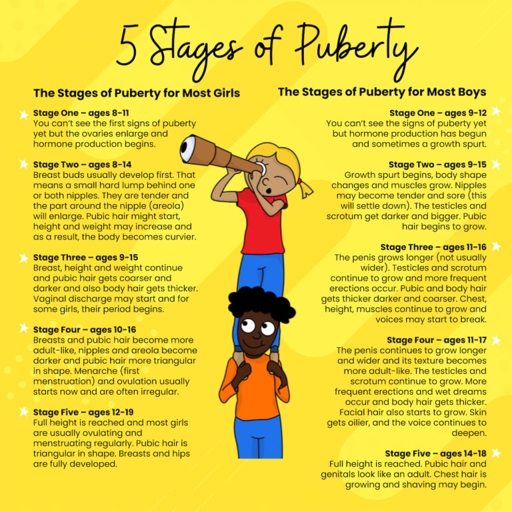
There is a wide range of normal ages for the onset and completion of puberty. The average age of onset of puberty is 10–11 for girls and 11–12 for boys, but starting as early as age 8 or as late as age 14 is not unusual. Completion of puberty is also variable, with most girls finishing by age 15–17 and most boys by age 17–18, but some girls finishing as late as age 19 and some boys as late as age 21.
Clothes Are Too Small
This is normal! This is because your body is growing faster than your clothes can keep up with! If you’re experiencing a growth spurt, you may need to go up a size or two in clothing to stay comfortable. Your feet will usually grow the most during your teenage years. You may also notice that your feet seem to be growing faster than the rest of your body. Clothes are too small one of the signs and symptoms of teenage growth spurts. As your body changes and grows during puberty, you may find that your clothes start to feel tighter and more uncomfortable.
Shoes Don’t Fit
There are a few telltale signs that a growth spurt is on the horizon, and one of the most common is that shoes start to feel tighter and less comfortable. This is because as bones and muscles grow, they start to put pressure on the soft tissue and joints, which can cause discomfort. If you notice any of these signs, it’s a good idea to take your child to a shoe store to get their feet measured and to find shoes that fit properly. Additionally, you may notice that your child’s feet seem to be growing faster than the rest of their body, which can also lead to tightness in shoes.
Prominent Knees, Elbows, Wrists & Shoulders
This is because the bones and muscles in these areas are growing faster than the rest of the body. During a growth spurt, teenagers will often have prominent knees, elbows, wrists, and shoulders. The extra bone and muscle growth can make these areas look larger and more defined. As a teenager goes through puberty, they will experience a growth spurt. This is when their bones and muscles grow at a faster rate than usual.
Crashing Into Everything
There are a few things that can indicate that a teenager is experiencing a growth spurt. One is a sudden increase in appetite. This can be measured by a sudden increase in the length of the arms or legs, or by a change in the position of the head in relation to the body. Another sign is a sudden increase in height. Finally, a teenager may start to experience more aches and pains, particularly in the joints, as the bones and muscles start to grow at a faster rate. This can be accompanied by a sudden weight gain as the body starts to store more fat in preparation for the growth spurt.
Hair & Beard Growth
Boys usually start to notice hair on their face, chest, and back before their voice begins to change. This is when their bodies start to produce more testosterone, which stimulates hair growth. Most teenage boys experience a growth spurt during puberty.
The rate of hair growth can vary from person to person. Some boys may see a lot of hair growth in a short period of time, while others may have a more gradual increase.
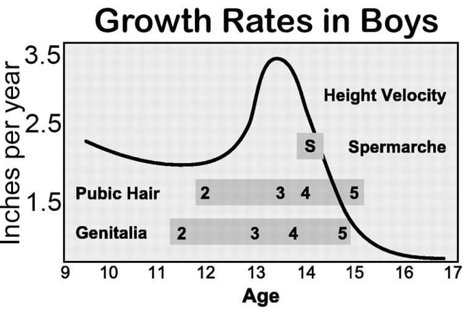
The age at which boys start to grow facial hair can vary, but it is usually around 16 or 17 years old. Beard growth is usually the last stage of puberty for boys.
It is important to remember that everyone goes through this stage and that it is completely normal. Some boys may feel self-conscious about their hair growth during puberty. If you are concerned about your hair growth, talk to your doctor or a dermatologist.
Body Shape Changes
This is usually accompanied by a sudden growth in height. Another sign is a change in body shape. Finally, teenagers may experience a change in their energy levels and moods during a growth spurt. One sign is a sudden increase in appetite. There are a few signs that may indicate a growth spurt in teenagers. This can be either an increase in muscle mass or a change in body fat distribution.
Body Odor
However, some teens may experience more intense or prolonged body odor due to puberty, diet, or health conditions. Body odor is a natural and normal part of human development.
These substances mix with bacteria on the skin and create a strong, often unpleasant, smell. Puberty is the most common cause of increased body odor in teens. During puberty, the body begins to produce more sweat and oil.
Foods that are high in protein, such as meats and cheeses, or high in sugar can cause the body to produce more sweat and oil, which can lead to increased body odor. Diet can also affect body odor.

Certain health conditions can also cause increased body odor. If you are concerned about your body odor, talk to your doctor. These include diabetes, kidney disease, and certain types of cancer.
Change In Voice
During a growth spurt, a teenager’s voice may change. The voice may become deeper and more resonant. The change in voice may be temporary or permanent.
Emotional Changes
However, emotional changes can also occur during this time. These spurts are characterized by a rapid increase in height and weight. Most people experience growth spurts in their teenage years.

Many teenagers experience mood swings and emotional outbursts. This is due to the hormonal changes that occur during puberty. It is also common for teenagers to feel more self-conscious and sensitive during this time.
This is often due to the increased pressure to perform well in school and to fit in with their peers. If you are concerned about your teenager’s mental health, it is important to talk to them about your concerns. Some teenagers may also start to experience anxiety or depression.
It is important to remember that emotional changes are normal during puberty. If your teenager is struggling to cope, there are many resources available to help them.
Increasing Appetite
If you are concerned about your teenager’s eating habits, please consult with their doctor. Your teenager may be particularly ravenous during the morning and evening hours. During a growth spurt, your teenager may experience an increase in appetite. This is due to the fact that their body is requiring more energy and nutrients to support the growth process. It is important to make sure that your teenager is eating nutritious meals and snacks throughout the day to support their growing body.
Hangry Teens
But growth spurts can also be a time when kids gain weight. In fact, many teens gain weight during growth spurts. Most people think of teenage growth spurts as a time when kids become taller.
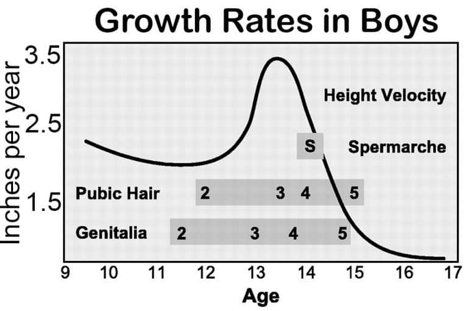
There are a few reasons for this. Second, growth spurts can cause kids to have more energy. They may not feel like they need to sleep as much, so they stay up later and eat more. First, during puberty, kids’ bodies start to produce more hormones. These hormones can cause kids to have a higher appetite.
Help them understand that it’s normal to gain weight during a growth spurt. Second, make sure they’re getting enough exercise. Encourage them to be active for at least 60 minutes every day. Finally, talk to your teen about their weight. If your teen is going through a growth spurt, there are a few things you can do to help them manage their weight. Encourage them to eat lots of fruits, vegetables, and whole grains. First, make sure they’re eating healthy foods.
They can help you create a plan to help your teen manage their weight during a growth spurt. If you’re concerned about your teen’s weight, talk to their doctor.
Pimples
Pimples are a common sign of teenage growth spurts. They are caused by an increase in hormones, which can cause the sebaceous glands to produce more sebum. This can block the pores and cause the formation of pimples. Pimples can be treated with over-the-counter medications, but if they are severe, you should see a doctor.
Sleep Changes
Some teenagers may also have trouble staying asleep through the night. During growth spurts, teenagers may experience changes in their sleep patterns. They may need more sleep than usual, or they may have trouble falling asleep. These changes are normal and usually temporary.
What is a Growth Spurt?
A growth spurt is a period of rapid growth. Growth spurts can be a time of great physical and emotional change for teenagers. For teenagers, a growth spurt usually occurs during puberty. During a growth spurt, a teenager may grow several inches in a few months.
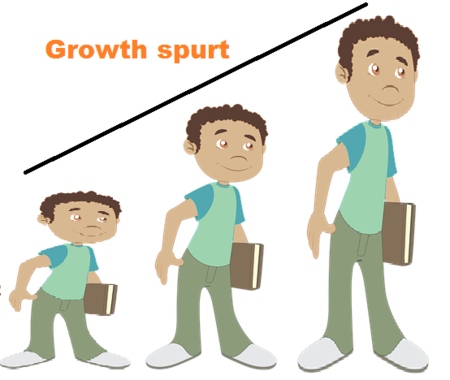
This can cause some teenagers to feel awkward and uncoordinated. During a growth spurt, a teenager’s bones, muscles, and organs all grow at the same time. Growth spurts can be a difficult time for some teenagers, but they eventually adjust to their new bodies. Their bodies may also ache.
However, they may continue to fill out and gain weight until they are in their early 20s. Most teenagers reach their full adult height by the time they are 16 or 17 years old. After a growth spurt, teenagers usually don’t grow much taller.
What Causes Growth Spurt In Teens?
This is a period of rapid growth, during which they grow taller and gain weight. The timing of a growth spurt varies from person to person, but it usually occurs between the ages of 10 and 16. Girls tend to have their growth spurt earlier than boys. As teenagers enter puberty, they experience a growth spurt.
During a growth spurt, teenagers may grow several inches in a year. This can be a difficult time for teenagers, as they may feel awkward and self-conscious about their changing bodies. They may also gain weight, as their bodies begin to fill out.

There is no single cause of growth spurts in teenagers. They are a natural part of puberty, and are influenced by a variety of factors, including hormones, nutrition, and genetics.
When Do Teenage Growth Spurts Happen?
The teenage years are a time of great change for both boys and girls. As they enter puberty, their bodies begin to go through some major changes. One of the most noticeable changes is a growth spurt.
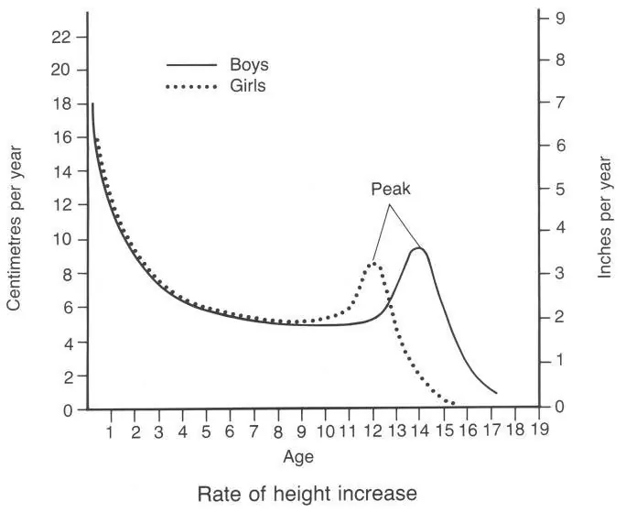
Most teenage boys will have a growth spurt sometime between the ages of 14 and 16. For girls, it usually happens a little earlier, between the ages of 12 and 14. During a growth spurt, a teenager can grow up to 4 inches (10 cm) in a single year!
While it’s normal for teenagers to have a growth spurt, it can be a bit of a shock for their parents! All of a sudden, their child is much taller than they used to be. They may need new clothes and shoes more often than before.
Exercise is important for teenagers, even if they’re already tall. If you’re a parent of a teenager, there are a few things you can do to help them through this time. First, be patient! It will help them stay strong and healthy. Second, help them stay active. It can be hard to keep up with their growth, but try not to get too frustrated.
A balanced diet is key for teenagers, especially during a growth spurt. Finally, don’t forget to encourage them to eat healthy. They need plenty of nutrients to help their bodies grow.
They can answer any questions you have and help you figure out if everything is normal. If you’re worried about your teenager’s growth, talk to their doctor.
Growth Spurts In Girls
For girls, growth spurts typically occur around the ages of 10-12 and 15-17. Around these ages, girls will experience a rapid increase in height and weight. There is no definitive answer to when teenage growth spurts happen, as every individual is different. boys, growth spurts typically occur around the ages of 12-14 and 16-18. Around these ages, boys will experience a rapid increase in height and weight. Additionally, girls may notice changes in their body composition, such as an increase in breast size and hips. Additionally, boys may notice changes in their body composition, such as an increase in muscle mass and facial hair. However, there are some general trends that can be observed.
Growth Spurt In Boys
This is the time when they start to grow taller and gain more muscle mass. The average age for a boy to start puberty is 12, but it can happen as early as 9 or as late as 16. The average age for a boy to reach his full adult height is 16.5. Most teenage boys experience a growth spurt during puberty.
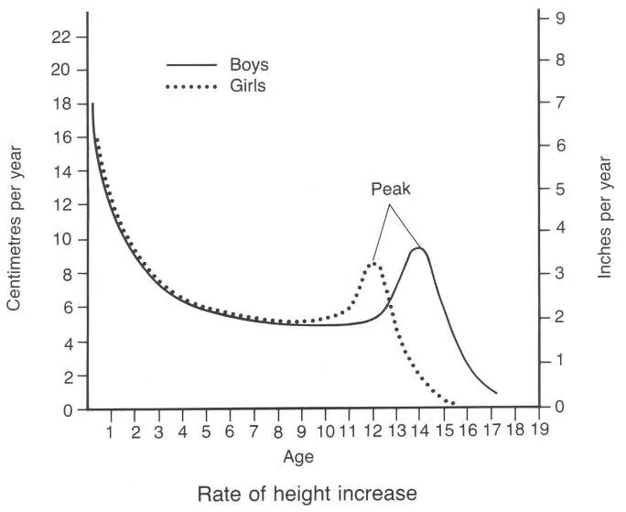
During puberty, boys usually grow about 4 inches (10 cm) per year. During the growth spurt, boys usually grow taller and gain about 15 to 25 pounds (7 to 11 kg). The growth spurt usually starts about 2 years after the testicles begin to enlarge. Once it starts, it lasts about 2 to 4 years.
Some boys may have a growth spurt as early as age 9, while others may not have one until they are 15 or 16. The average age for a boy to reach his full adult height is 16.5. The timing of a growth spurt varies from one boy to the next.
There are a few things that can affect the timing of a growth spurt, including:
• Genetics: Boys who have taller parents or grandparents tend to have a later growth spurt.
• Hormones: Boys who have higher levels of testosterone tend to have a earlier growth spurt.
• Nutrition: Boys who have a poor diet may not reach their full potential height.
• Health: Boys who have certain medical conditions, such as pituitary gland disorders, may have a delayed growth spurt.
If you are concerned about your son’s growth, talk to his doctor. He can track your son’s growth and development and let you know if he is on track or if there are any concerns.
How Much Do You Grow In A Growth Spurt?
A growth spurt is a period of rapid growth that occurs during adolescence. This rapid growth is due to an increase in the production of growth hormone by the pituitary gland. During a growth spurt, teens can grow up to 4 inches (10 cm) in a year. The average age for girls is 10-11 years old and for boys is 12-13 years old.
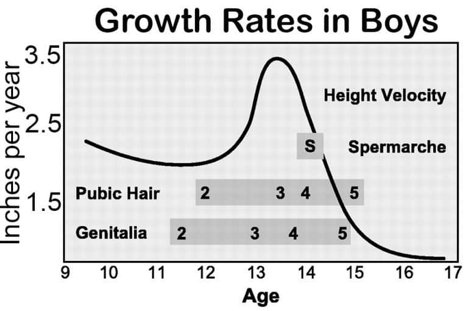
However, the timing and intensity of growth spurts can vary from person to person. Some teens may have a more pronounced growth spurt than others, and some may have multiple growth spurts throughout their teenage years. Most teens will experience a growth spurt at some point during their teenage years.
However, most teens will grow several inches during a growth spurt. If you are wondering how much you will grow during a growth spurt, there is no easy answer. Everyone grows at a different rate, so it is hard to predict how much growth you will experience. There are a few things that can indicate that a growth spurt is happening, such as a sudden increase in appetite, a change in shoe size, or a growth in height. However, the most obvious sign of a growth spurt is a sudden increase in height.
Why Is Nutrition Important During Growth Spurts?
Good nutrition is important for teenagers for many reasons: During growth spurts, teenagers need extra nutrition to support their bodies as they grow.
· It helps them build strong bones and muscles.
· It helps them maintain a healthy weight.
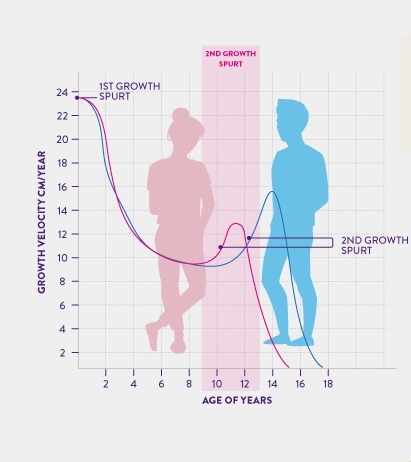
· It helps them have more energy.
· It helps them concentrate and learn better.
· It helps them avoid diseases and health problems later in life.
What Is The Average Height For Boys And Girls?
However, it’s important to remember that not everyone will experience all of these symptoms. If you’re concerned about your child’s growth, it’s always best to talk to a doctor. The average height for boys and girls during a growth spurt is typically around 10-12 centimeters. However, there can be a lot of variation from person to person. The most common signs and symptoms of a teenage growth spurt are a sudden increase in appetite, a change in sleeping patterns, and a growth in height or width.
How Do Growth Spurts Affect Teenagers?
This can be a challenging time for teens, as their bodies are changing faster than they can keep up with. Growth spurts can affect teenagers in a number of ways, both physically and emotionally. During a growth spurt, a teenager may grow several inches in a relatively short period of time.
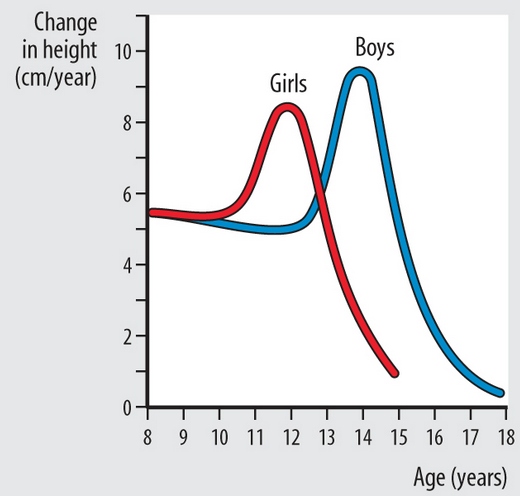
Emotionally, growth spurts can be a roller coaster ride. Teens may feel self-conscious about their changing bodies and may compare themselves to their friends. They may also experience aches and pains in their joints and muscles. Their limbs may feel too long for their bodies, and they may trip over their own feet. Physically, growth spurts can cause teenagers to feel awkward and uncoordinated. They may also feel moody and irritable.
Fortunately, growth spurts eventually come to an end and teenagers adjust to their new bodies. If you’re a teenager who is experiencing a growth spurt, be patient and kind to yourself. In the meantime, there are a few things that can help teenagers cope with growth spurts. Getting plenty of rest, eating a healthy diet, and staying active can all help. It won’t last forever!
Clumsiness
It is caused by the sudden increase in height and weight, which can make the body feel uncoordinated. The limbs may feel heavy and awkward, and the hands and feet may seem to be too big for the body. Clumsiness is a common symptom of teenage growth spurts. This can make it difficult to walk and run, and can also lead to accidents and injuries.
Growing pains
If your teenager is experiencing growing pains, encourage them to rest and apply a heat pack to the affected area. Growing pains are not harmful and usually resolve on their own within a few days or weeks. The pain is usually felt in the legs and is often described as a dull, aching sensation. It is most commonly experienced in the evening or at night. Growing pains are a common occurrence during adolescence. Over-the-counter pain medication may also be used to help relieve the pain. Many teenagers experience them during periods of rapid growth.
Affected Sleep
During a growth spurt, teenagers may experience a variety of symptoms, including: Most people experience a growth spurt during adolescence. This is a time when the body is growing and developing at a rapid pace.
-A sudden increase in appetite

-Sleeping more than usual
-Feeling clumsy or awkward
-Moodiness or irritability
-Acne
While these symptoms can be disruptive, they are all normal parts of adolescence. Growth spurts usually last for a few months and then the body returns to its normal growth pattern.
Focus On Their Appearance
They may become more interested in fashion and start to pay more attention to their hair and clothes. They may also start to wear more makeup and pay more attention to their skin. Some girls may even become obsessed with their appearance and start to diet and exercise excessively. Most teenage girls are very self-conscious about their appearance and are always looking for ways to improve their looks.

Help her to understand that she is beautiful just the way she is and that she does not need to change her appearance to be happy. If you are concerned that your teenage daughter is becoming too focused on her appearance, there are some signs to look for. She may also start to diet excessively or become obsessed with her weight. If you notice any of these signs, it is important to talk to your daughter about it. She may start to spend more time in front of the mirror, or she may start to wear more revealing or sexy clothing.
When Should You Consult A Doctor About Your Teen’s Growth Spurt?
It’s normal for teenagers to have growth spurts. But when should you consult a doctor about your teen’s growth spurt?
Consult your doctor if your teen: If your teen is experiencing a sudden growth spurt, it’s important to monitor their health and development.
– Is experiencing pain or discomfort in their joints or muscles
– Has a sudden change in appetite
– Is having difficulty sleeping
– Is experiencing mood swings or changes in behavior

– Has a sudden change in their appearance, such as acne or excessive body hair
They can provide you with guidance and support to ensure your teen is healthy and happy. If you’re concerned about your teen’s growth or development, don’t hesitate to consult your doctor.
How Tall Will My Child Be?
As your child enters their teenage years, you may start to notice some changes in their appearance. They may start to grow taller and gain weight at a faster rate. These changes are normal and are a result of the growth hormone, which is released during puberty.
During a growth spurt, your child may grow several inches in a short period of time. Their feet and hands may also grow faster than the rest of their body, which can cause them to feel clumsy. This can be a bit of a shock to their system and they may experience some aches and pains.
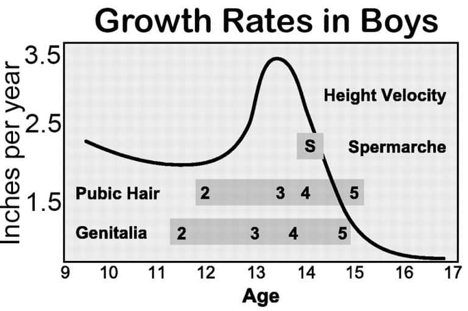
It depends on a variety of factors, including genetics. The average height for boys is about 5’9″ and for girls, it’s about 5’4″. If you’re wondering how tall your child will be when they’re done growing, there’s no simple answer. However, you can get an idea of their potential height by looking at their parents.
So, if you’re wondering how tall your child will be, keep an eye on their growth spurts and look to their parents for an idea of their potential height.
Tips On How You Can Help Your Teenager
You may be wondering if there are any signs or symptoms that indicate your teenager is going through a growth spurt. As a parent, you want what is best for your teenager. You want them to be happy and healthy, and to grow into responsible adults.
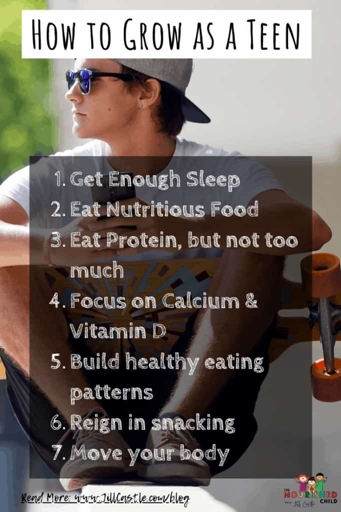
There are a few things you can look for that may indicate your teenager is experiencing a growth spurt. This is because their bodies are using more energy and they need more calories to support their growth. This is because their bodies are growing and they need more rest. First, you may notice that they are eating more than usual. Finally, you may notice that their clothes are fitting more snugly than usual. You may also notice that they are sleeping more than usual. This is because their bodies are getting bigger and their clothes are starting to feel tighter.
There is no need to be concerned, as this is a normal part of adolescence. However, if you have any concerns, you should speak to your teenager’s doctor. If you notice any of these signs, it is likely that your teenager is going through a growth spurt.
Talk To Them About What Changes To Expect
The teenage years are a time of great change, both physically and emotionally. It is during this time that most teens will experience a growth spurt. This can be a confusing and sometimes scary time for teens, as their bodies change in ways they may not be prepared for.

There are a few things that parents can do to help their teens through this time. This can help them be prepared for the physical changes they will experience. First, it is important to talk to them about what changes to expect. It is also important to be supportive and understanding during this time. Growth spurts can be accompanied by mood swings and other emotional changes, so it is important to be there for your teen during this time.
Finally, it is important to encourage your teen to eat healthy and exercise during this time. A healthy lifestyle will help them through this time of change and will set them up for a lifetime of good health.
Have Lots Of Healthy Food Available
When it comes to teenage growth spurts, one of the most important things to have is lots of healthy food available. This is because during a growth spurt, your body is going to need more nutrients and calories to support the growth process.
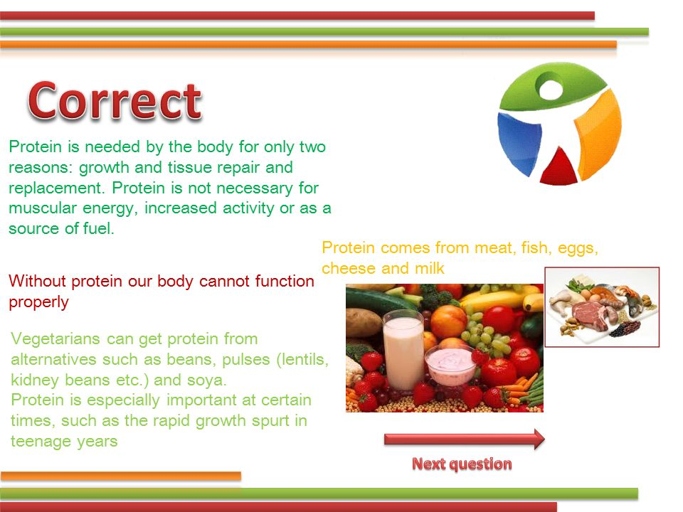
So, make sure you stock up on healthy foods like fruits, vegetables, lean proteins, whole grains, and healthy fats. This way, you can make sure your teen is getting all the nutrients they need to support their growing body.
This is because water helps to keep the body hydrated, which is important for all bodily functions, including growth. In addition to having healthy food available, it’s also important to make sure your teen is drinking plenty of water.
So, make sure your teen is drinking 8-10 glasses of water per day, and if they are active, they may need even more.
This is because during sleep is when the body does a lot of its growing and repair work. Finally, if you want to help your teen during their growth spurt, you can also make sure they are getting enough sleep.
So, aim for your teen to get 8-10 hours of sleep per night, and if they are going through a particularly intense growth spurt, they may need even more.
Encourage Physical Activity
Encouraging physical activity is a great way to help your teenager during a growth spurt. Getting regular exercise will help your teenager to feel good about their body and to stay healthy. Growth spurts can be a difficult time for teenagers, as their bodies are changing and they may feel awkward or self-conscious.
You can talk to them about the benefits of exercise, such as improving their mood, energy levels, and overall health. You can also help them to find an activity that they enjoy and that they can stick with. There are many ways to encourage your teenager to be physically active.
You can also try other activities such as swimming, biking, or playing tennis or basketball. As your teenager becomes more active, they can increase the intensity and duration of their workouts. If your teenager is not very active, you can start by encouraging them to take a brisk walk around the block each day.
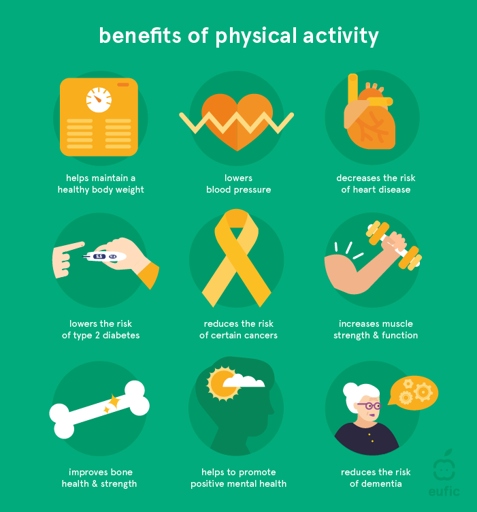
Eating a balanced diet will help them to maintain a healthy weight and to get the nutrients that they need for their growing bodies. It is important to make sure that your teenager is getting enough rest and eating a healthy diet during a growth spurt. Exercise can help to improve their sleep and to give them more energy.
They can give you advice on how to encourage your teenager to be more active and to make sure that they are staying healthy during this time. If you are concerned about your teenager’s physical activity level, you can talk to their doctor.
Avoid Comparing Them To Their Peers
During teenage growth spurts, it is common for teens to compare themselves to their peers in terms of height, weight, and other physical changes. Instead, focus on celebrating their individual growth and development. However, it is important to avoid comparing them to their peers, as this can lead to feelings of insecurity and low self-esteem.
Key Takeaways
This is the period of rapid growth that occurs during the transition from childhood to adolescence. Second, growth spurts are not always accompanied by obvious physical changes. However, there are a few common signs to look out for, including a sudden increase in appetite, a sudden growth in height, and a sudden change in shoe size. First, it’s important to know that growth spurts can happen at any time during adolescence, but they are most common during the pubertal growth spurt. Finally, it’s important to remember that growth spurts are a normal part of adolescence and are nothing to be concerned about. In fact, many teens will not show any obvious signs of a growth spurt until it is over. There are a few key takeaways to be aware of when it comes to the signs and symptoms of teenage growth spurts.
Frequently Asked Questions
1.What are the signs and symptoms of teenage growth spurts?
2.What causes teenage growth spurts?
3.How long do teenage growth spurts last?
4.What can I do to help my teenager during a growth spurt?
5.What are some common side effects of teenage growth spurts?
1.What are the signs and symptoms of teenage growth spurts?
The most common sign of a teenage growth spurt is a sudden increase in height. Other signs can include an increase in appetite, change in sleep patterns, and mood swings.
2.What causes teenage growth spurts?
The cause of teenage growth spurts is still not fully understood, but they are thought to be related to changes in hormone levels during puberty.
3.How long do teenage growth spurts last?
Teenage growth spurts can last for a few months to a year. During this time, teenagers can grow several inches in height.
4.What can I do to help my teenager during a growth spurt?
There is not much you can do to help your teenager during a growth spurt, but you can make sure they are getting enough rest and eating a healthy diet.
5.What are some common side effects of teenage growth spurts?
The most common side effect of teenage growth spurts is aches and pains in the bones and muscles. This is due to the sudden increase in height and is usually nothing to worry about.
Final thoughts
There are a few key signs and symptoms to look out for when teenage growth spurts are occurring. These include a sudden increase in height, a change in shoe size, and a growth in body hair. If you notice any of these changes in your teenager, it is likely that they are going through a growth spurt.